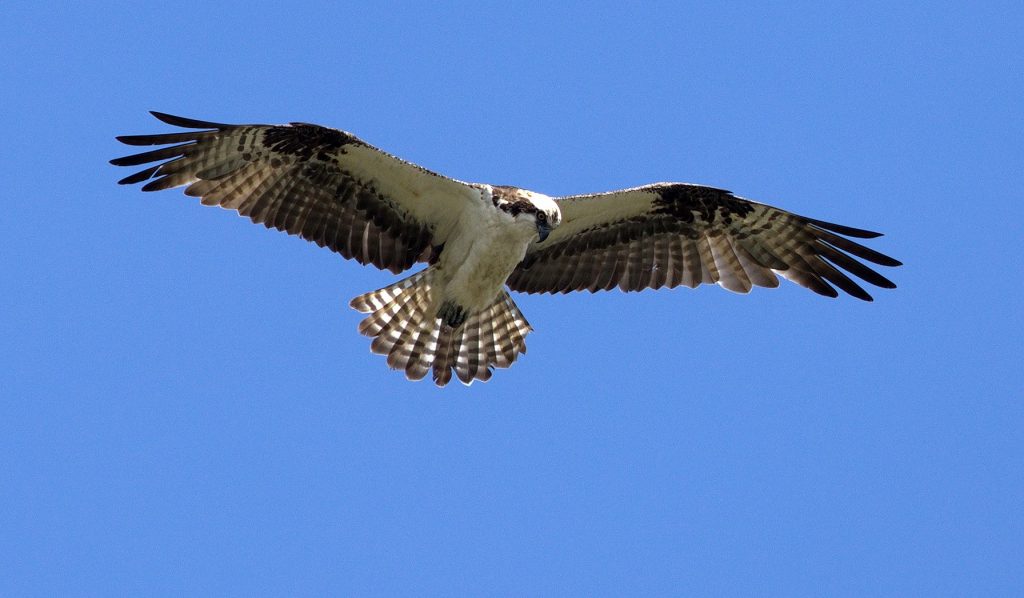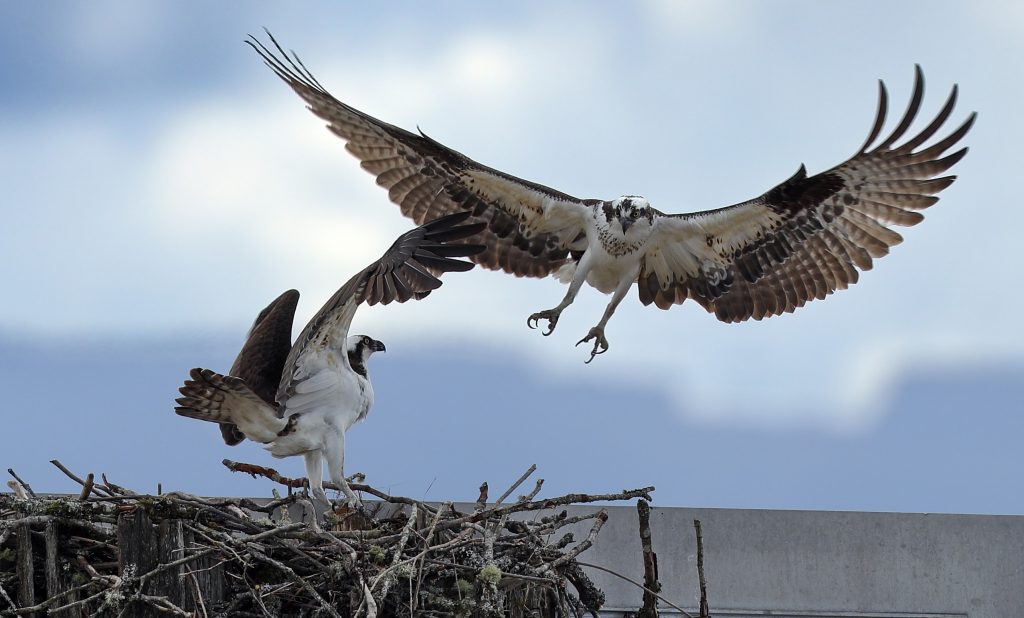Support Us
Since 1979 more than 140,000 animals have been treated by Wildlife Rescue.
Thanks to the support of individuals like you, Wildlife Rescue can provide a lifeline for animals in distress.
Known for their technique of diving for fish feet-first, Ospreys are a majestic sight in the lower mainland where they inhabit lakes, rivers, and ponds.

Unfortunately, entanglement is a large problem for these birds. When fishing lines and other materials are not properly disposed of, birds will use them as supplies for their nests – leading to entanglement. When these large birds get trapped in twine, they can no longer hunt fish or provide for their young.
In the past, the Wildlife Rescue Association has seen four Ospreys in our care due to entanglement. Each of these Ospreys was found in the water by Good Samaritans concerned about the health of these birds.
When healthy and thriving, Ospreys are easily identifiable with their extraordinary brown and white M-shaped wings and their large size! These unique birds are essential to the biodiversity of BC. Habitat and food for these birds are the same – with a diet that mostly revolves around fish (which is also where they get their water), the rivers and lakes they live by are essential to their health.
Ospreys search for trees in open surroundings which helps them find ground predators when searching for a nest. Their nests, made of sticks and lined with grasses, are one reason why entanglement happens so often for them. When discarded materials – particularly fishing lines – are left out, Ospreys will often use them as supplies for their nests, leading to them getting entangled in these man-made materials.

Thankfully, there are many easy and simple ways to help Ospreys, such as…
Of course, another great way to help is to rescue injured wildlife! If you see a bird that has exposed bone or blood, bugs or insects covering it, no feathers, or a bird that is sleeping, human intervention is required. Please contact our Support Centre for support. We will make sure the bird is treated with kindness and compassion.
Let’s keep our lakes and rivers clean and protect Ospreys!